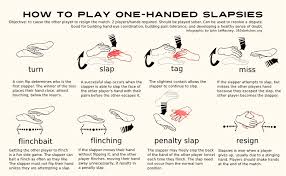I was listening to comedian Mark Maron speak to writer and comedian Carol Leifer on Maron’s popular podcast WTF. He was asking about what it was like to come out of the closet to her parents after years of being married to a man and living a heterosexual lifestyle.
Leifer described her parents as surprisingly supportive and happy that their daughter had found a woman to love.
“So you’re not disappointed in me?” she asked.
“We were disappointed in you when you married that Gentile,” Leifer’s father said. “Not now.”
Leifer went on to explain that the fact that her girlfriend was Jewish actually made the situation more palatable to her parents. It turns out that as long as she was marrying a Jew, it didn’t matter if it was a woman or a man.
Maron, also Jewish, laughed, and when I’ve mentioned this exchange to others since then, they have laughed as well.
I did not think it was funny.
Being married to a Jewish woman and not being Jewish myself, I did not find any amusement in this story.
It’s a story I live with constantly, and it never gets funny.
A few weeks ago, Elysha, Clara and were visiting a local Jewish Community Center with a friend to let the kids play on the indoor playscape. I sat down on a bench beside two older men waiting to play racquetball. One of the men was talking about how annoyed he has been with his daughter for marrying outside the faith. The other man said, “My daughter did the same thing. Eventually you accept it. You never love it, but it won’t always bother you as much as it does today.”
Later on, I met a woman responsible for arranging cultural events for the community center. We began talking, and the fact that I am an author came up. She mentioned that she might like to have me speak to the community center’s members sometime.
“Are you a member of the JCC or thinking of joining?”
Another woman said, “Oh, Matt isn’t Jewish. His wife is.”
“Oh,” the first woman said, and the conversation fizzled out.
Later my wife asked what I thought of the JCC and wondered if I would ever want to become a member. I told her that while I thought the place was great, I didn’t think that I could ever feel completely comfortable there and explained why.
To her credit, she understood completely.
It’s a difficult space in which to live, married to a Jewish woman but not being Jewish myself, and the difficulty exists only because of the Jewish demand to marry within the faith. It creates a situation in which I often feel not only like the outsider but also the interloper, and it leaves me wondering where I stand in people’s minds.
Take my wife’s family for example. Elysha’s parents, sister, aunts and uncles, cousins and grandmother have embraced me like one of their own, and I’m so grateful to them for their love and generosity. Her immediate family in particular have made me feel at home in a way that no other family ever has.
I love them all dearly.
And yet in the back of my mind lingers this thought:
Certain members of Elysha’s family, like many Jews, would never have considered marrying outside the faith, and therefore none of them would have ever considered me marriage material for themselves or their children.
Had it not been for Elysha, my membership in their family would have been unthinkable for some.
Had they or their children been looking for a suitable spouse I would have never been considered.
Here’s a good way to think about it:
It’s socially acceptable, culturally expected and commonplace for Jewish parents to impose the expectation that their children will marry within the Jewish faith. It is a belief that is publicly articulated, and to do otherwise in some families can damage the family beyond repair. Some Jewish parents have gone so far as to disown their children and mourn them as if they had died.
It’s something that Mark Maron and Carol Leifer can laugh about despite the unfortunate truth behind this belief.
But what if we replace the word Jewish with black or Hispanic?
What if Leifer’s parents had said that they were disappointed in her for marrying a black man?
Would she have been so willing to tell that story on the podcast?
Would it have been as amusing?
I don’t think so.
What if the man outside the racquetball court had been upset because his daughter had married a Puerto Rican?
Would he have been so willing to share this disappointment with a stranger sitting next to him?
I suspect not.
And what if Elysha called her family tomorrow and said that after much deliberation and conversation with me, she has decided to forgo Judaism in favor or another religion or no religion at all?
While Elysha’s family is one of the most understanding and accepting of Jewish families, I suspect that this news would not go over well with all parties.
At least at first.
I suspect it could be a source of disappointment and even anger for some.
But what if Elysha called her family tomorrow and told them that I had decided to convert to Judaism.
I suspect this news would go over quite well.
This dichotomy never entirely leaves me.
When I hear people like Maron and Leifer joking about these issues on a podcast or a man openly expressing these beliefs while sitting beside me in a community center, it makes me feel like an interloper again.
While other religions place similar expectations on their children, the Jewish expectation to marry within the faith is especially strong. When we were engaged to be married, Elysha would come home at least once every couple weeks and tell me about the code that Jews use to determine if I was Jewish.
“What’s his last name?”
Sadly, had my last name been Dickstein instead of Dicks, our pending nuptials would have been received with considerably greater joy by some.
It’s the difference between tolerance and acceptance.
This feels like 99% acceptance.
“You can marry Elysha, but someone of similar beliefs could never marry one of my children.”
“You don’t have to be Jewish, but your wife and children had better be stay Jewish.”
As unfortunate as the sentiment is, it makes me feel lucky, because Elysha’s parents and family are outliers when it comes to their acceptance of me. Elysha’s parents embraced me immediately, without question or reservation.
I know Jewish parents who would make their child’s life hell of he or she chose to marry outside the faith, which I find amazing.
Imagine the audacity and selfishness required for parents to believe that they have the right to screen out potential spousal candidates based upon religious beliefs.
In today’s world of interracial and homosexual marriages, it’s almost medieval.
My hope is that with time, the Jewish community at large will become more accepting of interfaith marriages and make us less-Chosen people feel more genuinely welcome.
Making me good enough for Elysha but never for their own daughter is an unfortunate quality that the world could do without.








